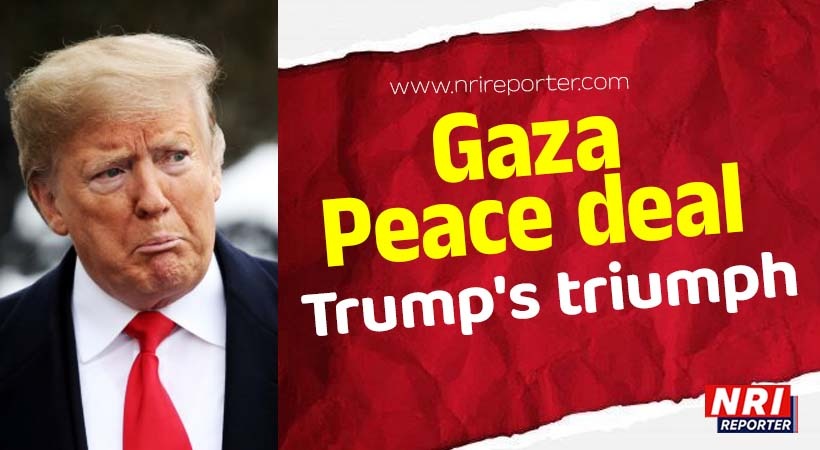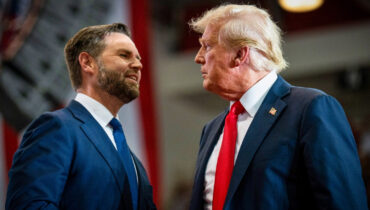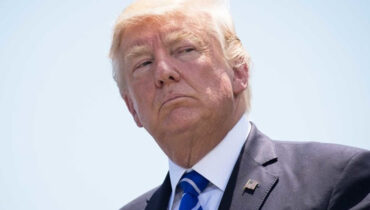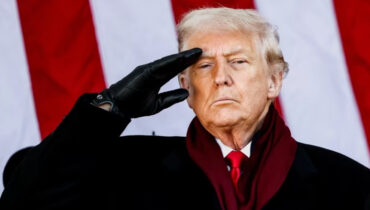
Sebastina
The news of the withdrawal of the Israeli military troops from certain parts of Gaza has just been reported as I am writing this. This is the start of the first stage of the peace deal, which could lead to the end of the 2-year-long bloodshed in the Gaza Strip.
On Wednesday, October 8, 2025, U.S. President Donald Trump announced the initiation of the first phase of the peace deal between Israel and Hamas, stating that both parties “signed off on the first phase” of the peace deal.
Trump, along with the other negotiators of the peace deal, drew up a 20-point framework to end the war in Gaza. He revealed the plan alongside Israeli Prime Minister Benjamin Netanyahu, who had given Israel’s assent to the terms on September 29 at the White House. The first stage of the peace deal will include the withdrawal of Israeli troops from the Gaza Strip to an agreed-upon line and the release of all the hostages. According to media outlets, Hamas has agreed to free all Israeli hostages within 72 hours after the Israeli forces have withdrawn from Gaza. Several hundred lorries with humanitarian aid will also be allowed to enter the Gaza Strip, providing relief to the victims of war.
The Israeli cabinet has approved the agreement for a ceasefire and the release of hostages. As of now, an IDF radio reporter has announced on the social media platform X that the Israeli army will reach the line that will reduce its control over the Gaza Strip to 53 percent by noon. After which, Hamas is expected to release all 20 hostages, who are believed to be still alive, within 72 hours.
A multinational force of 200 troops led by the U.S. military will oversee the progress of the ceasefire agreement in Israel.
While the peace deal is only in its early stages, the later phase of the original plan intends for Hamas to relinquish its arms and control over the Gaza Strip. Hamas had previously refused to give up arms and has not yet made a further response regarding it.
The 20-point plan also mentions a plan for a temporary transitional government, comprising an “apolitical Palestinian Committee” overseen by the “Board of Peace,” under the leadership of U.S President Donald Trump. There is potential for further discussion over the details of the 20-point peace deal after the first phase is completed successfully.
After the October 7 attack by Hamas on southern Israel, which killed 1200 Israelis, the Israeli military led a 2-year-long war on the Gaza Strip, killing and injuring several Palestinians. According to Gaza’s Health Ministry, the 2-year-long war in Gaza has killed about 67000 Palestinians, including women and children, and left nearly 170,000 wounded. The news of the peace deal has brought immense joy and relief to both sides. Will the peace deal bring an end to the bloodshed of these two years? If successful, this peace deal will be a significant milestone in the Trump administration’s achievements.
Steve Witkoff and Jared Kushner: key players in the peace deal.
On September 29, at the press conference where Trump unveiled the 20-point peace deal, he thanked several allies and U.S. advisors, especially lauding Steve Witkoff and Jared Kushner for their efforts in crafting a plan that Israel could agree to.
Steve Witkoff, the Middle East envoy to the U.S. of the Trump administration, and Jared Kushner, the son-in-law of President Trump, are key players in assuring the commencement of the first phase of the peace deal. They were involved in making the terms of the peace deal more acceptable for Netanyahu, softening the rhetoric around Palestinian statehood. This is reflected in the vague language used in the 20-point plan on the future of Palestinian Statehood.
It is reported that Witkoff and Kushner also played a key role in retaining aspects that are agreeable with Palestinian priorities. The peace plan mentions that “no one will be forced to leave Gaza, and those who wish to leave will be free to do so and free to return,” which is a huge change from the previous proposal that encouraged Palestinians to be relocated to neighboring countries after the war.
Jared Kushner had stepped away from politics and was focused on establishing his new investment firm, Affinity Partners. Kushner secured hundreds of millions of dollars in investments for his firm from several Gulf States. Due to this, the legitimacy of his interest and involvement in the peace deal is questioned by many.



















